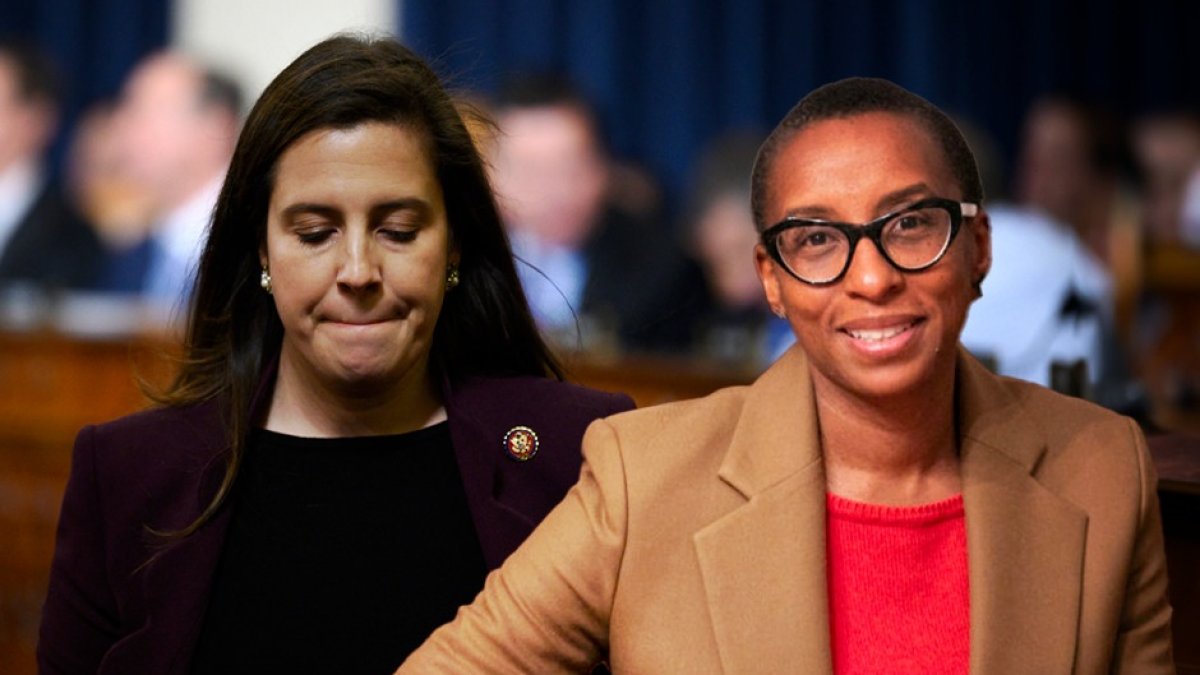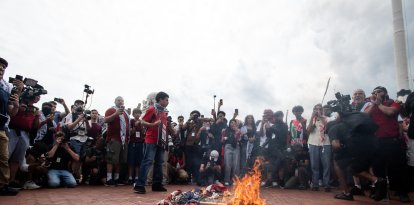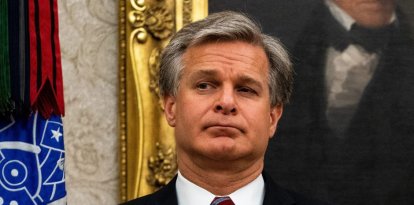Representative Stefanik strongly questions the president of Harvard in the hearing on combating antisemitism
The congresswoman asked Claudine Gay if calling for the genocide of Jews is considered free speech under university rules.

US Congresswoman Elise Stefanik, R-NY.
This Tuesday, December 5, the presidents of Harvard University, the University of Pennsylvania and the Massachusetts Institute of Technology testified at a hearing before the House Education and Workforce Committee on combating antisemitism on university campuses. There were several uncomfortable exchanges but the one that stood out most was between New York Rep. Elise Stefanik and the President of Harvard University Claudine Gay.
The presidents of the three universities condemned the antisemitic attacks that have occurred on the different campuses, at various times during the hearing. However, when asked about the lack of disciplinary consequences for students who commit antisemitic attacks and student organizations that openly call for Jewish genocide, they didn't have much to say.
Stefanik's claims to the president of Harvard University
The Republican representative asked the president of Harvard University if she was familiar with the term "intifada" and if she understood that it is a call to violence and genocide of Jews. Stefanik later mentioned that there have been different marches in which Harvard students chant "there is only one solution, intifada revolution" and "globalize the intifada." The representative asked Claudine Gay if this type of hate speech is against Harvard's code of conduct or if it is allowed at the university.
Gay replied: "We embrace a commitment to free expression even of views that are objectionable, offensive, hateful - it’s when that speech crosses into conduct that violates our policies against bullying, harassment, intimidation..."
The congresswoman replied by asking: "Does that speech not cross that barrier? Does that speech not call for the genocide of Jews and the elimination of Israel? You testified that you understand that that is the definition of intifada. Is that speech according to the code of conduct or not?"
The president of Harvard reiterated that the university is committed to free speech, but the representative interrupted her to remind her that according to a report, "Harvard ranked dead last when it came to free speech, are you not aware of that report? Stefanik asked Gay.
"Will admissions offers be rescinded or any disciplinary action be taken against students or applicants who say: 'from the river to the sea?'" the representative asked again, but the president only repeated several times that different cases are under investigation.
"What action has been taken against students who are harassing and calling for the genocide of Jews on Harvard's campus?" Stefanik asked, but Gay only repeated that investigations are ongoing.
Actions speak louder than words
Throughout the hearing, the different congressmen cited cases in which Jewish students were threatened, were victims of offensive speeches, were beaten and physically attacked, and also students who have been asked not to leave their dorms to protect their physical safety. Multiple cases, in different universities, show that while Jewish students are facing a hostile environment that even puts their physical integrity at risk, few actions are being taken to prevent and punish antisemitic behavior at universities.
Michigan Republican Rep. Lisa McClain encouraged college presidents to take real action. She said that many claim to have good intentions but when asked for examples of actions to effectively curb antisemitism, it seems like no one is doing anything.
Democratic Representative Kathy Manning pointed out that a Harvard student was asked by the professor to leave his class on the grounds that the other students did not feel comfortable having discussions about the topic in front of a Jewish student. The congresswoman stressed that such humiliation is simply unacceptable.

























